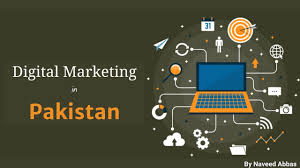Introduction
In a world where headlines scream global challenges Scholarships and interconnectedness, what skill can equip students to navigate this complex landscape? While academic prowess remains vital, it’s no longer enough. The future demands graduates who can transcend textbooks and excel in a critical area often overlooked: a global perspective.
The global perspective isn’t just about memorizing the capitals of distant lands. It’s a multifaceted lens that empowers students to:
Recognize the interconnectedness of global issues: From climate change to social justice, no issue exists in isolation. A student with global perspective sees the ripple effects of local decisions on distant communities and vice versa.
Also, read about Unlocking the Treasure Trove: A Comprehensive Guide to Scholarships in the UK
Understand diverse cultures and viewpoints: This goes beyond superficial understanding. It’s about appreciating the values, traditions, and historical contexts that shape how people from different backgrounds think and act.
Develop empathy and compassion: Global perspective compels students to step outside their own experiences and connect with the struggles and aspirations of others around the world.
Critically analyze information: With access to a deluge of information, students need the ability to discern fact from fiction, propaganda from objective analysis, and biases from diverse perspectives.
Become active global citizens: Equipped with knowledge, empathy, and critical thinking, students can engage in meaningful local and global action, advocating for positive change and fostering a more just and equitable world.
Why is this skill so critical?
Consider the following:
An increasingly interconnected world: Globalization has blurred borders, creating interdependent economies, environmental concerns, and social movements. Understanding these complex dynamics is crucial for effective problem-solving and responsible citizenship.
The rise of misinformation and bias: In a world bombarded with information, students need the ability to critically analyze diverse viewpoints and avoid echo chambers. Global perspective fosters healthy skepticism and encourages questioning accepted narratives.
Emerging global challenges: From climate change to pandemics, the 21st century presents unprecedented challenges that require collective action informed by understanding and collaboration across cultures and borders.
The need for ethical leadership: The future demands leaders who can navigate cultural differences, build bridges, and advocate for solutions that benefit all, not just select groups. A global perspective is a cornerstone of ethical leadership.
So, how can we cultivate this essential skill in our students?
Embrace experiential learning: Move beyond classroom walls and textbooks. Encourage service learning projects, virtual exchange programs, and international travel (when possible).
Incorporate diverse voices and perspectives: Feature authors, speakers, and case studies from various cultures and backgrounds into curriculums, fostering critical thinking and challenging student assumptions.
Promote media literacy: Teach students how to analyze information sources, identify bias, and verify facts. Encourage responsible social media use and critical engagement with global news.
Celebrate student agency: Empower students to explore their interests and passions within a global context. Encourage them to identify issues they care about and research solutions with a global perspective.
Build collaboration and empathy: Facilitate projects, discussions, and activities that require students to work together, listen to diverse viewpoints, and find common ground.
Cultivating global perspective is not a one-time exercise; it’s a lifelong journey. By equipping our students with this vital skill, we empower them to navigate the complexities of our interconnected world, become responsible global citizens, and shape a more just and equitable future for all.
This journey shouldn’t be limited to students. Educators, parents, and community members all have a role to play in fostering a global mindset. By engaging in open dialogues, embracing diverse experiences, and actively building bridges across cultures, we can collectively create a world where global perspective is not just a desirable skill, but the norm for generations to come.




















